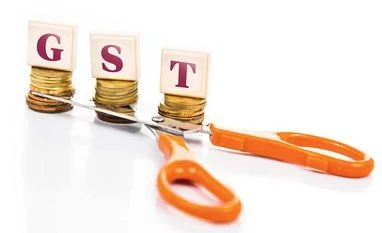The Constitution (122nd Amendment) Bill, which was passed by the Lok Sabha in May 2015, was taken up again by the House to approve the changes made in it by the Rajya Sabha last week. The government had moved six official amendments, including scrapping of one per cent additional tax, to the bill which were approved by the Upper House.
Initiating a debate on the bill, Veerappa Moily of Congress said his party supports the proposed legislation which provides for ushering in a single indirect tax regime across the country by subsuming various taxes.
At the same time, he said the Centre should keep the tax rate low under the new GST regime and bring the subsequent legislations as Finance bills instead of Money Bills.
He said GST should not be in "vested interest" of Centre and states and the government should specify the "neutral agent" who will ensure that the common man does not become a casualty of the new indirect tax regime.
P Venugopal (AIADMK) opposed the bill, saying Tamil Nadu is a manufacturing and originating state which will suffer while consuming states will benefit.
The concerns raised by party chief J Jayalalithaa have not been taken into consideration by the Centre, he said.
He cited various issues raised by the party including that GST Council should not be a Constitutional body and petroleum products should be kept permanently outside the purview.
Moily said the 1991 reforms brought by then Prime Minister Narashimha Rao had made others come out with revolutionary thought on reform. He said the GST law could have come much earlier had there been a political consensus.
"Congress party will extend full support for implementing GST," Moily said, a remark which was welcomed by Prime Minister Narendra Modi and other members of the Treasury benches by thumping of the desks.
Complaining that the NDA government had always viewed the Lok Sabha as a "junior partner" and did not take the House seriously, Moily said when the Lower House passed the GST bill in May last year, he had demanded that Joint Select Committee of both Houses of Parliament be set up.
"You think Rajya Sabha was important. When Rajya Sabha demanded Select Committee you agreed. You think there are no brains in the House (Lok Sabha). We demanded one per cent removal, you bulldozed it. But you had to come down in the Rajya Sabha," the Congress leader said.
"Democracy is not only majority, but consensus of all parties, both inside and outside the House," he said.
"I must say states and Centre have a vested interest in this. Who will be the neutral agent? who will be the loser? It is the common man who will be the casualty in this competitive attitude," Moily said.
On inflation impact of the GST, he said, it needs to be studied greatly because it is not a short term problem.
As far as GST rate is concerned, he said it has to be low as it prevents distortion.
You’ve reached your limit of 10 free articles this month.
Subscribe now for unlimited access.
Already subscribed? Log in
Subscribe to read the full story →

Smart Quarterly
₹900
3 Months
₹300/Month
Smart Essential
₹2,700
1 Year
₹225/Month
Super Saver
₹3,900
2 Years
₹162/Month
Renews automatically, cancel anytime
Here’s what’s included in our digital subscription plans
Exclusive premium stories online
Over 30 premium stories daily, handpicked by our editors


Complimentary Access to The New York Times
News, Games, Cooking, Audio, Wirecutter & The Athletic
Business Standard Epaper
Digital replica of our daily newspaper — with options to read, save, and share


Curated Newsletters
Insights on markets, finance, politics, tech, and more delivered to your inbox
Market Analysis & Investment Insights
In-depth market analysis & insights with access to The Smart Investor


Archives
Repository of articles and publications dating back to 1997
Ad-free Reading
Uninterrupted reading experience with no advertisements


Seamless Access Across All Devices
Access Business Standard across devices — mobile, tablet, or PC, via web or app



)


